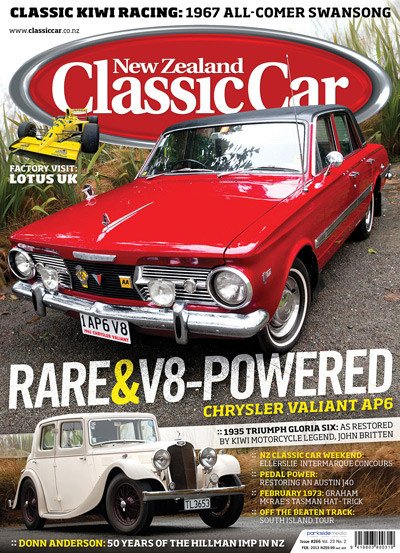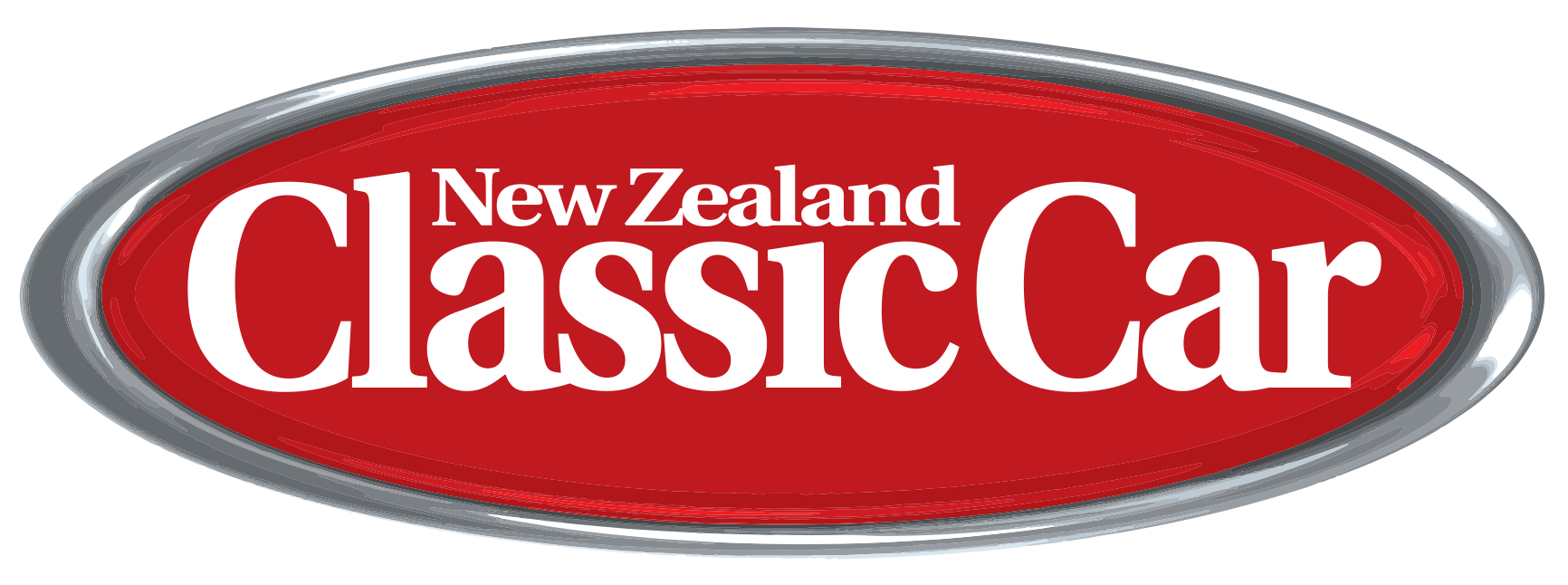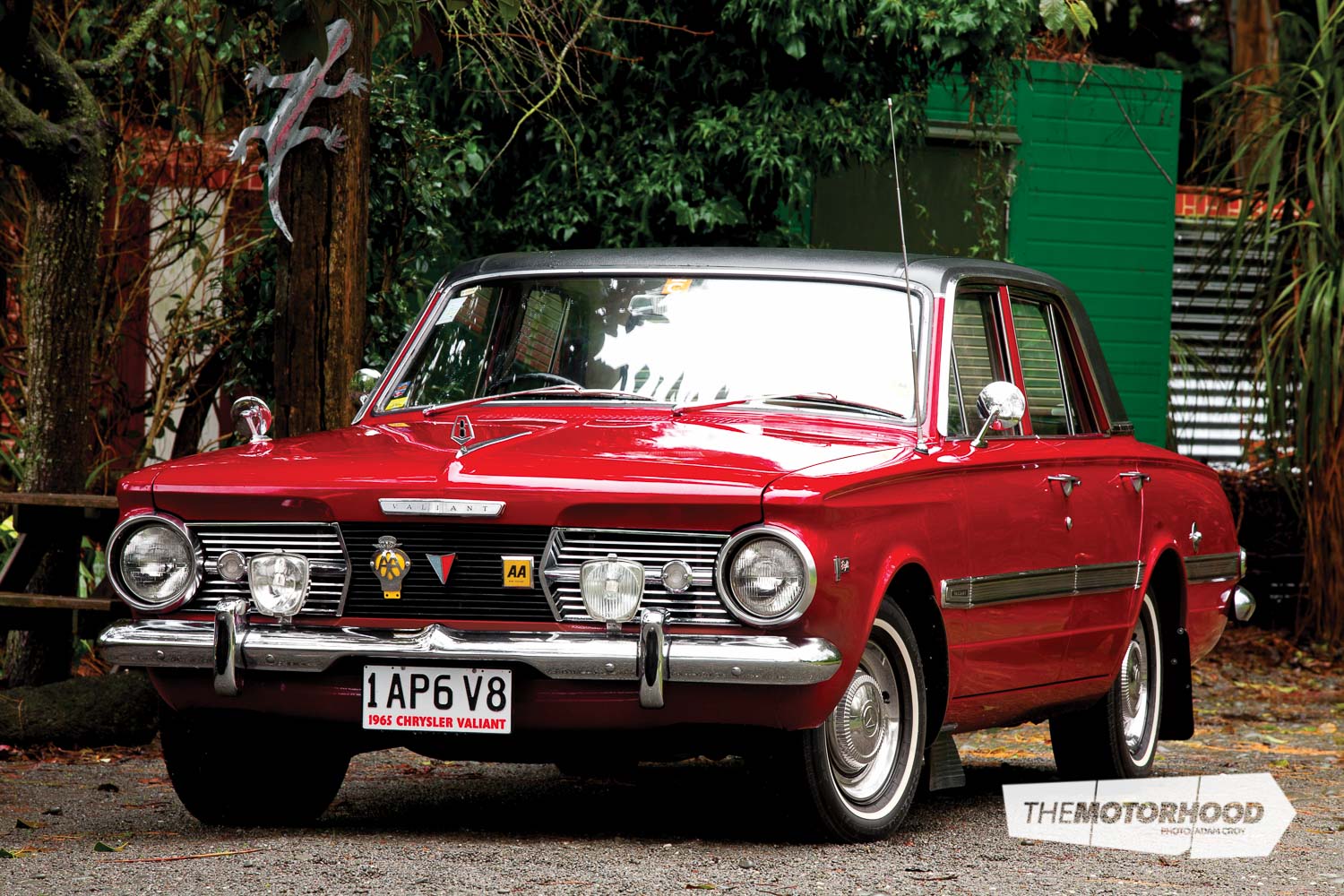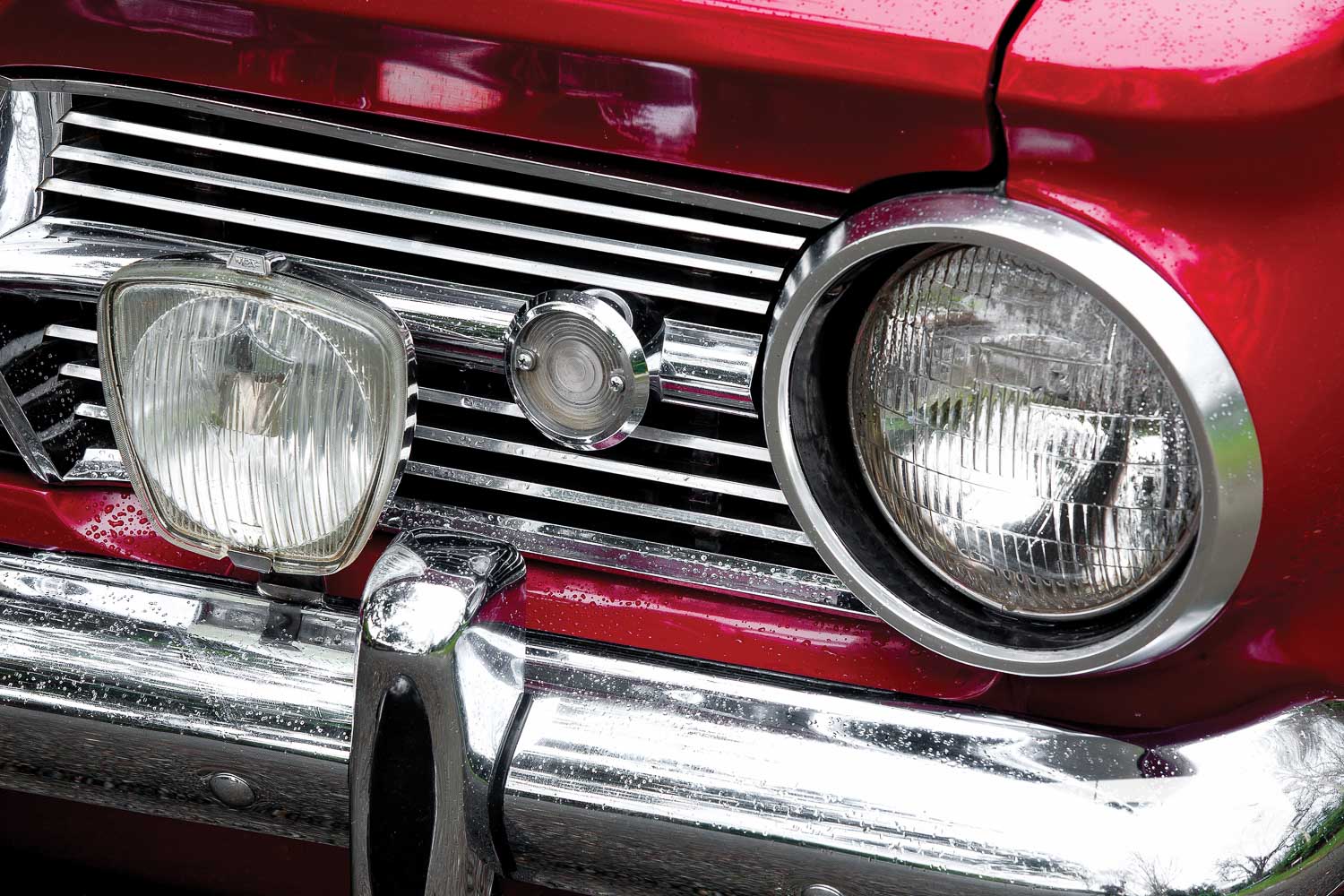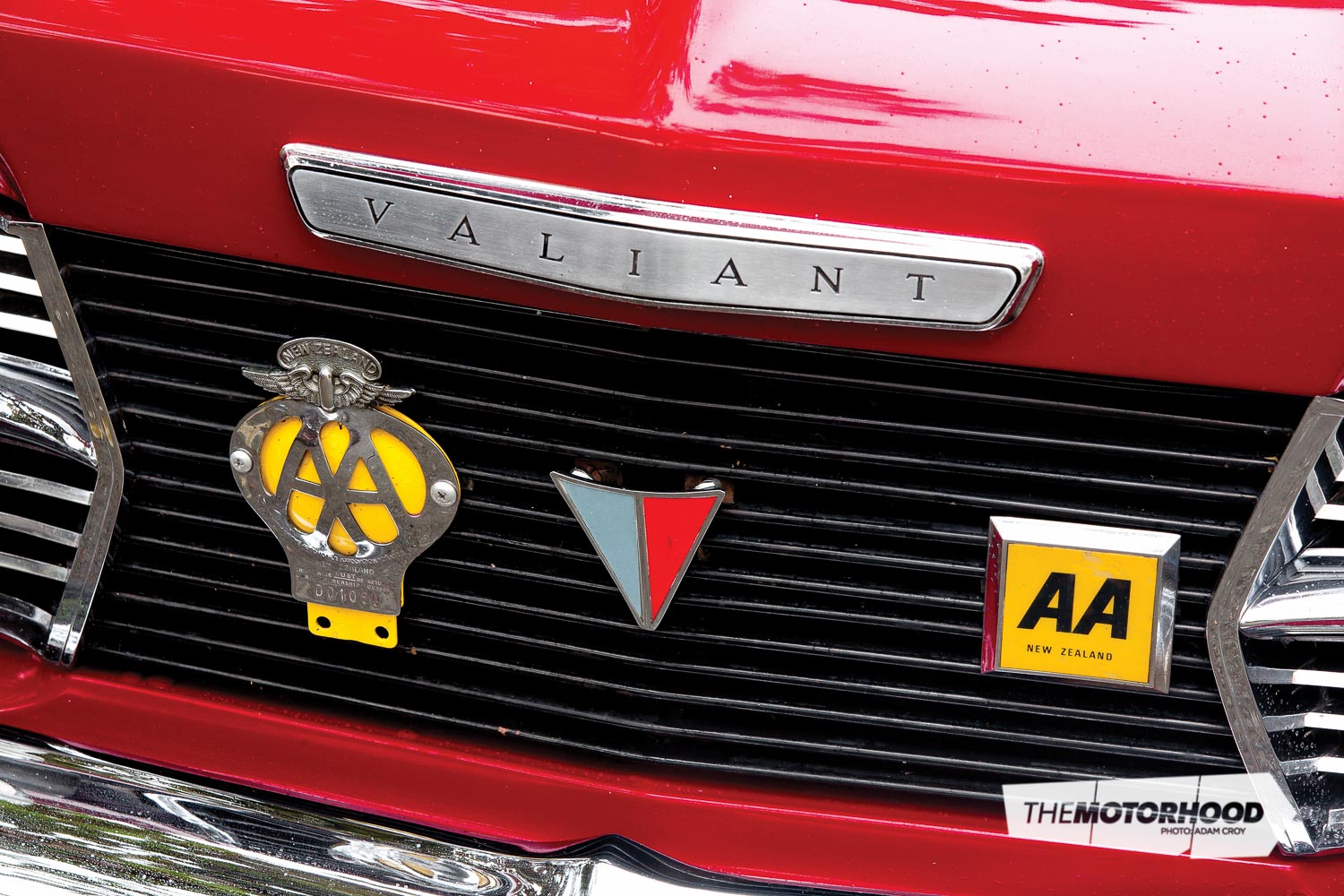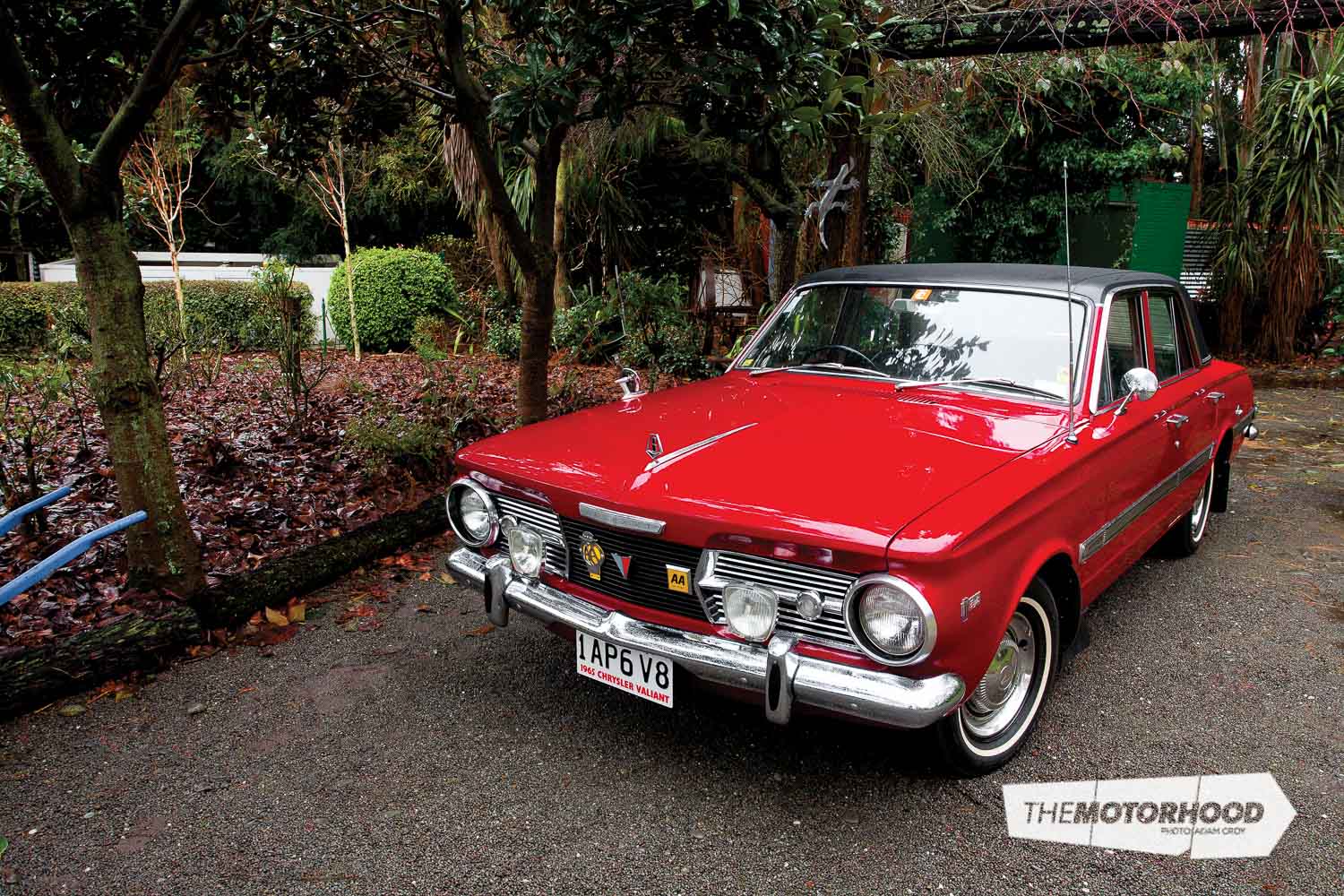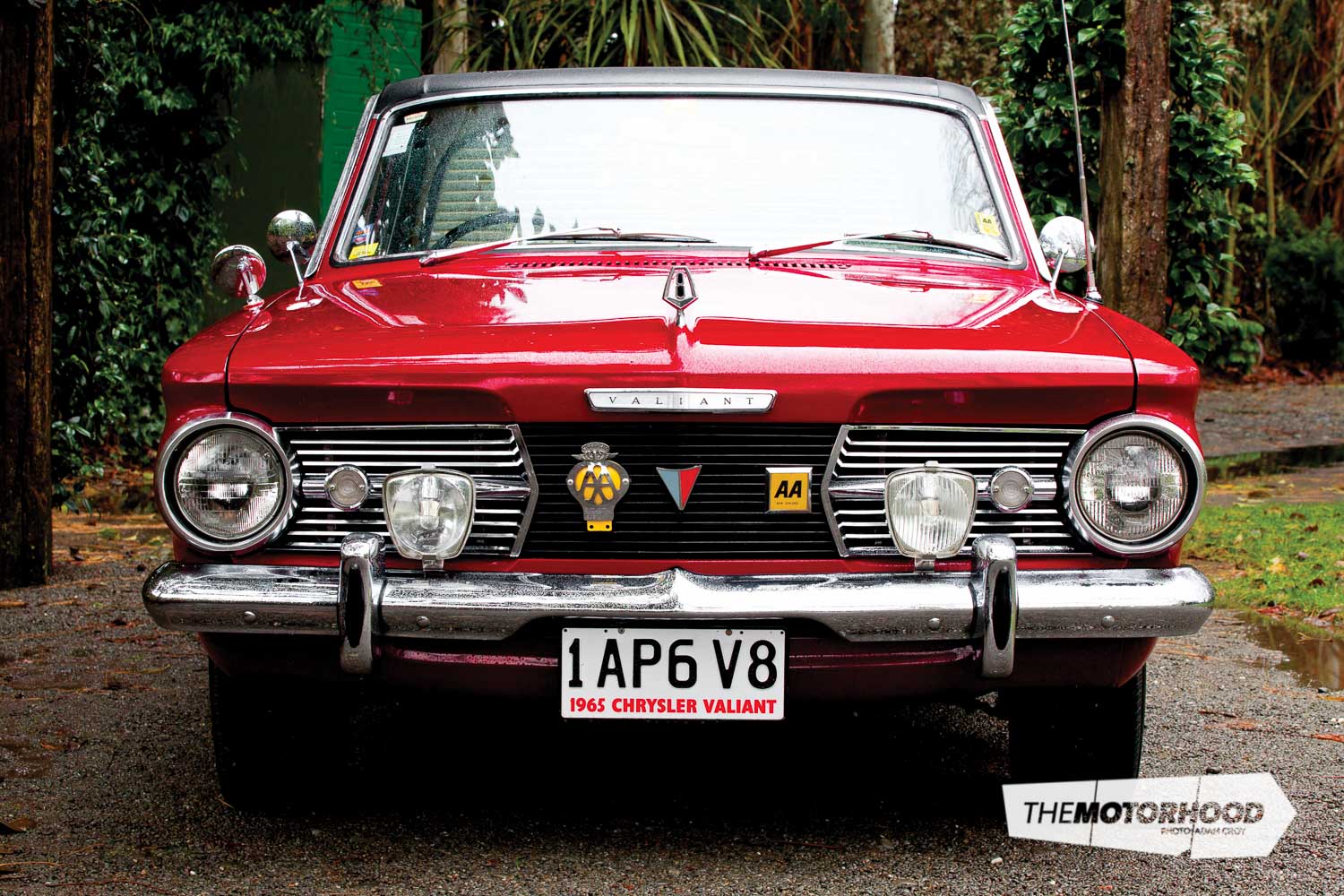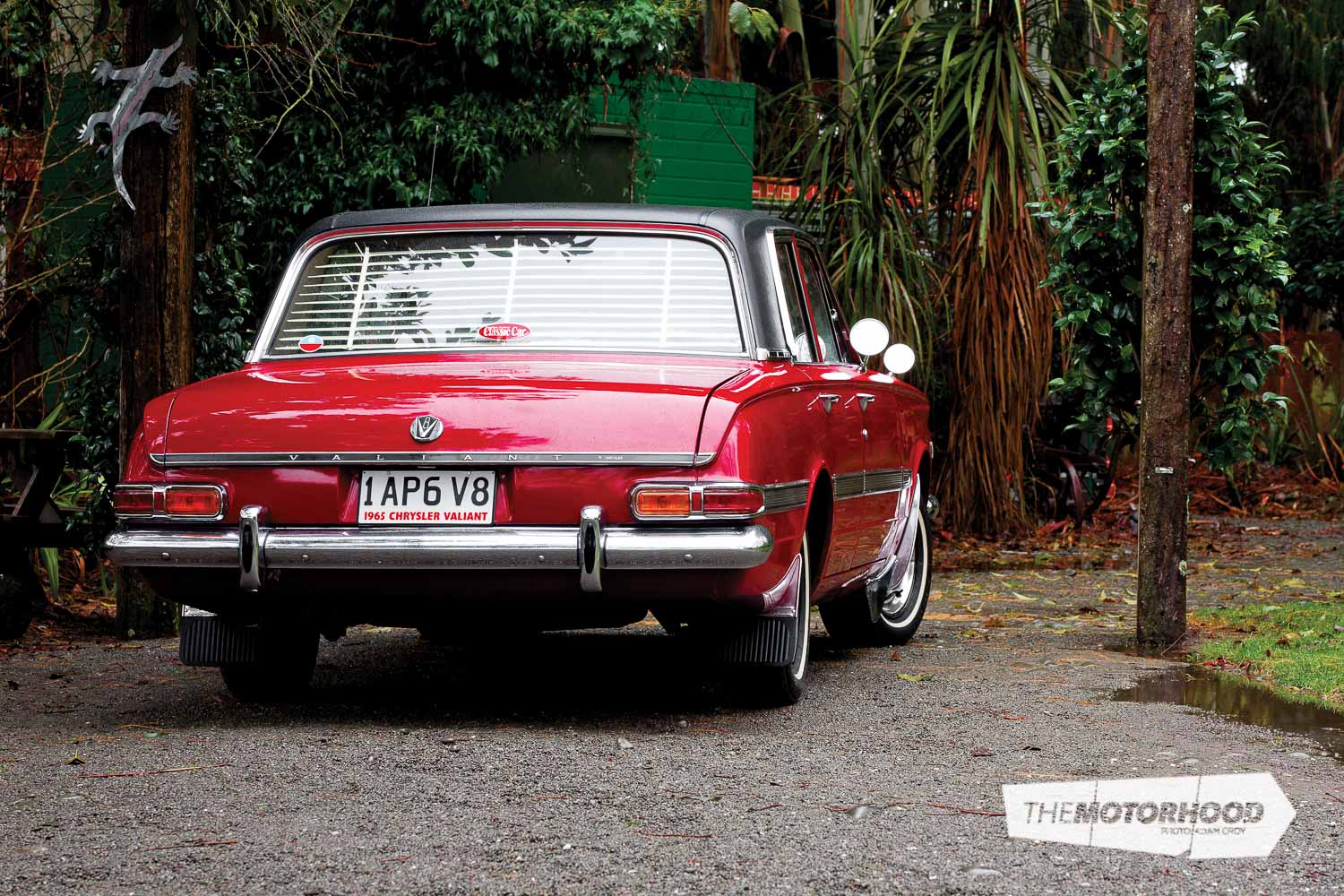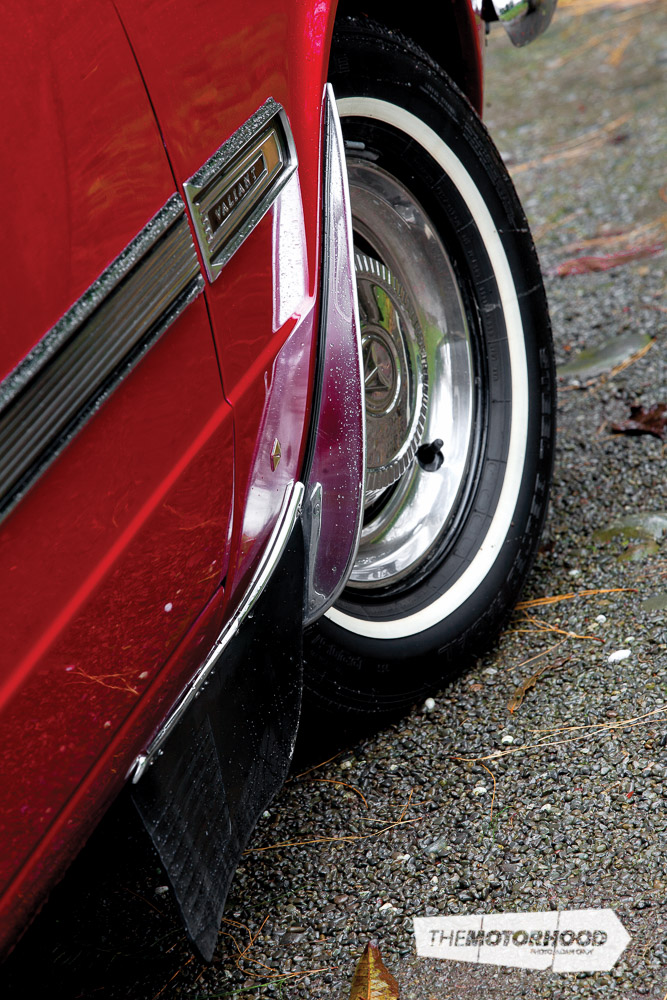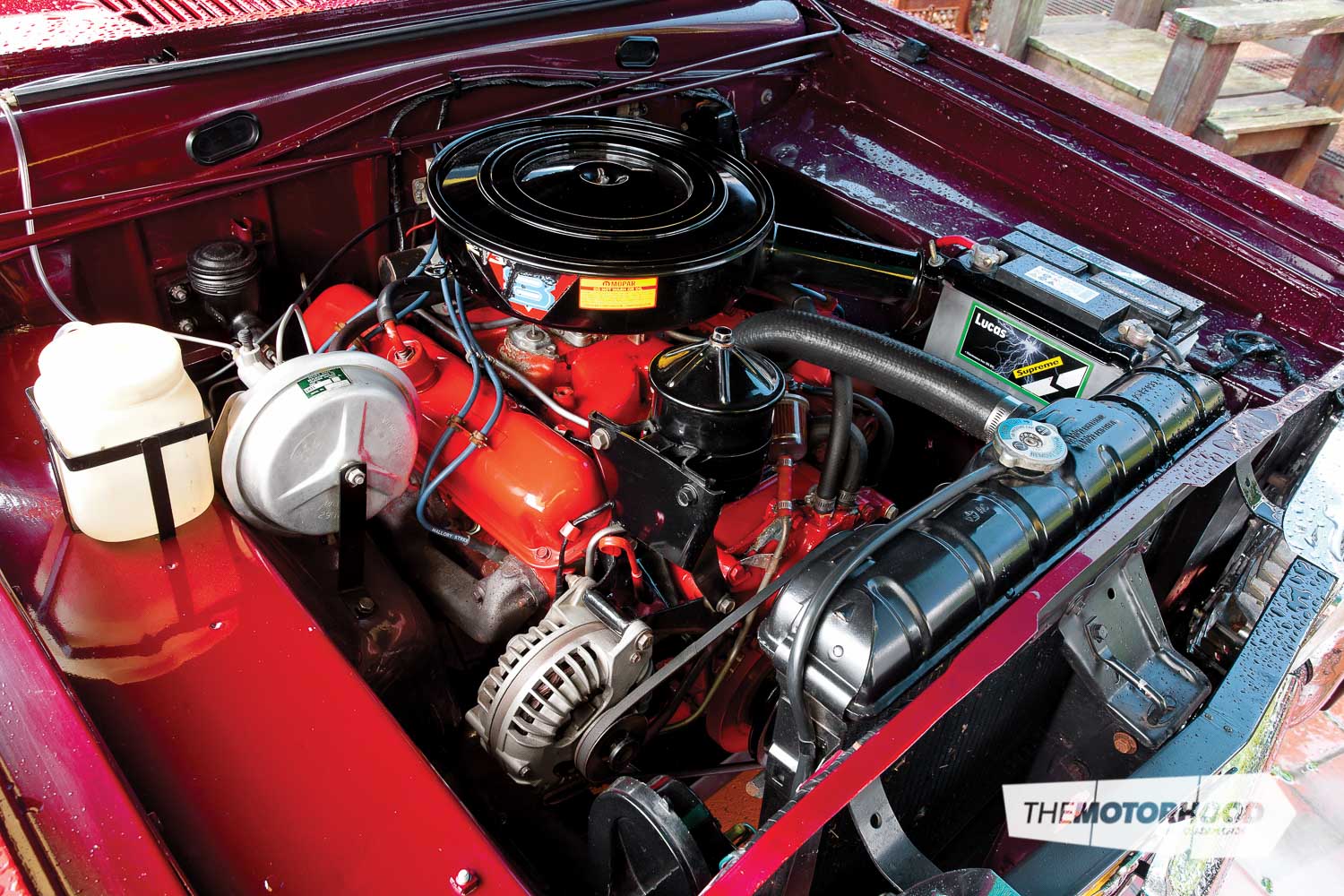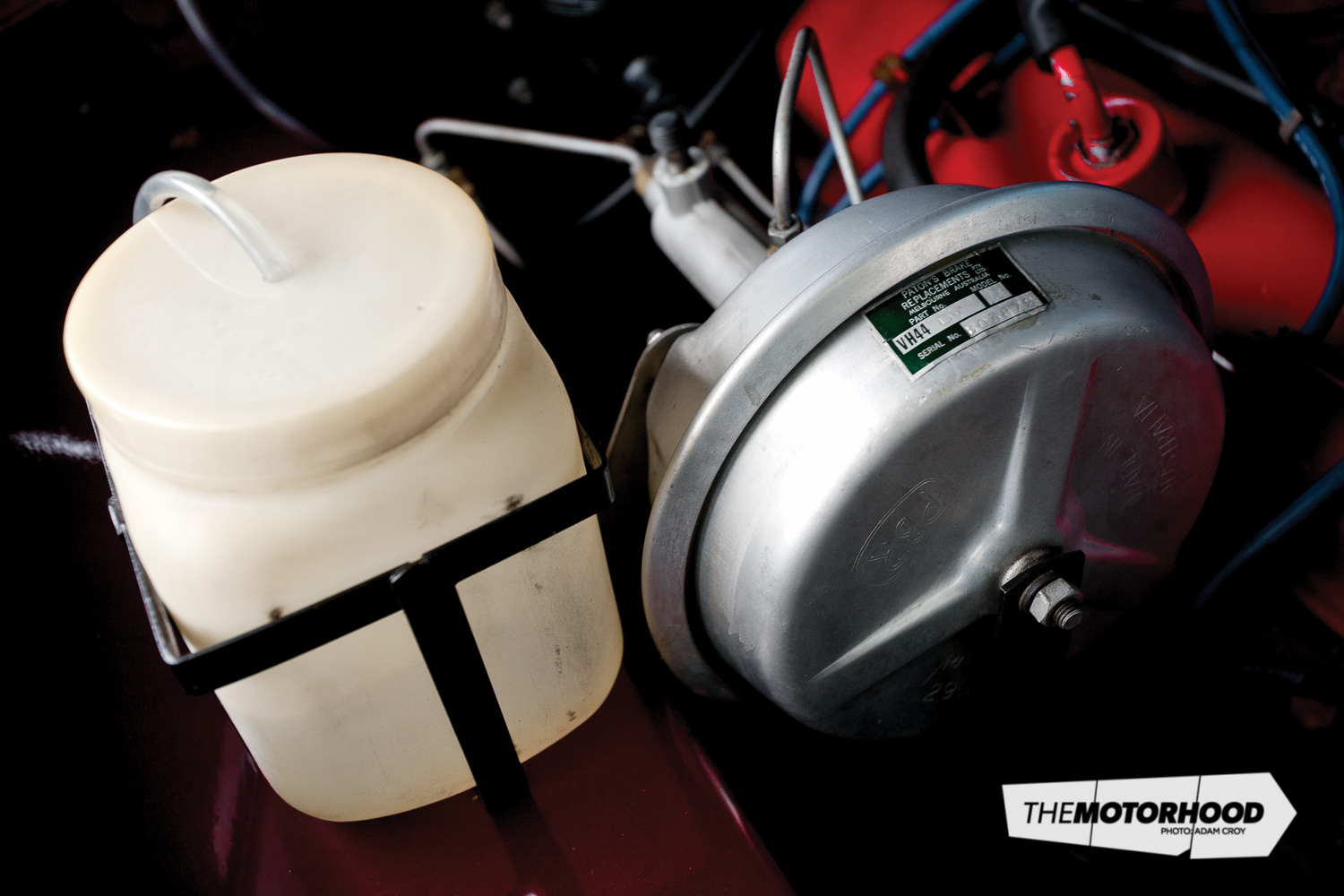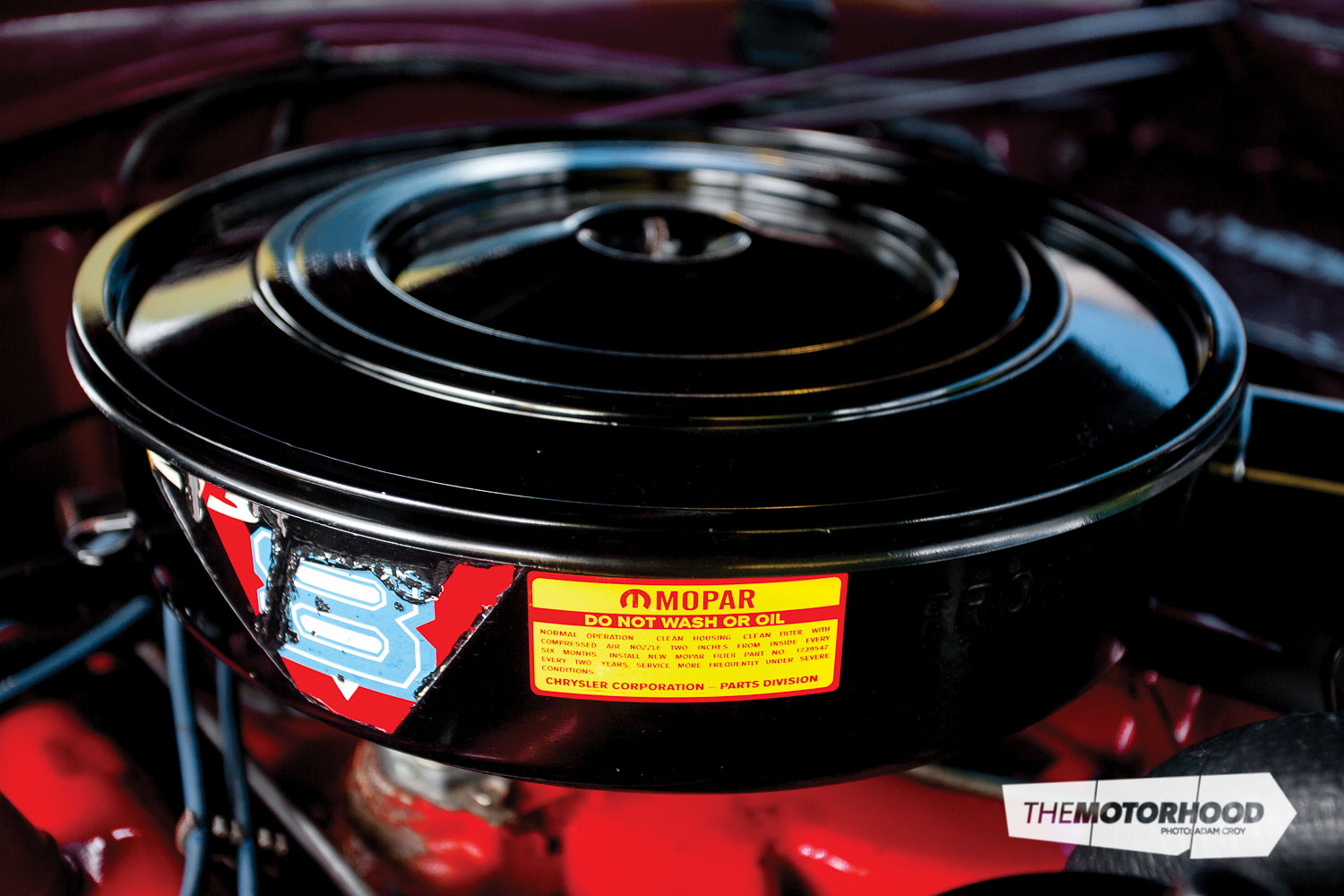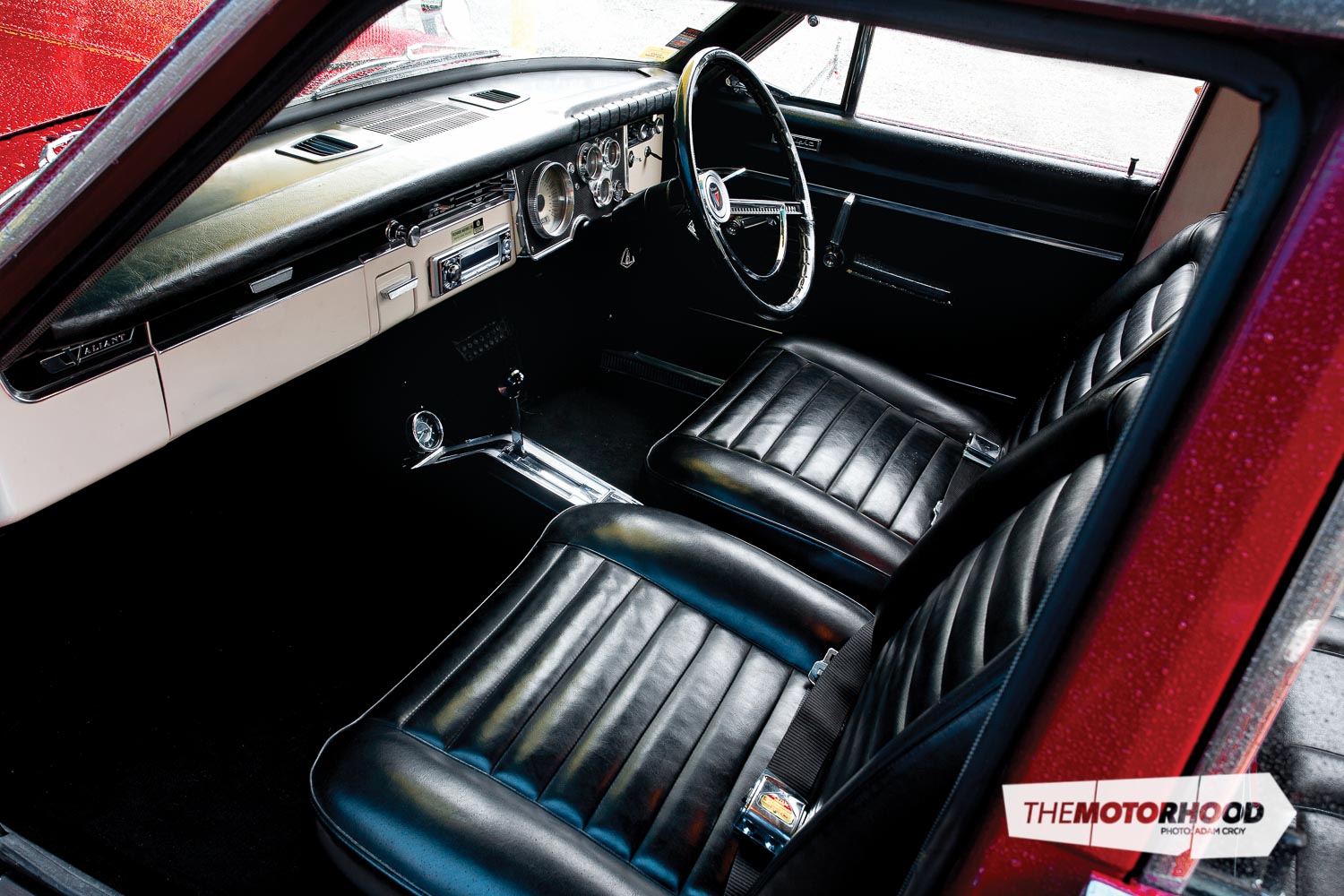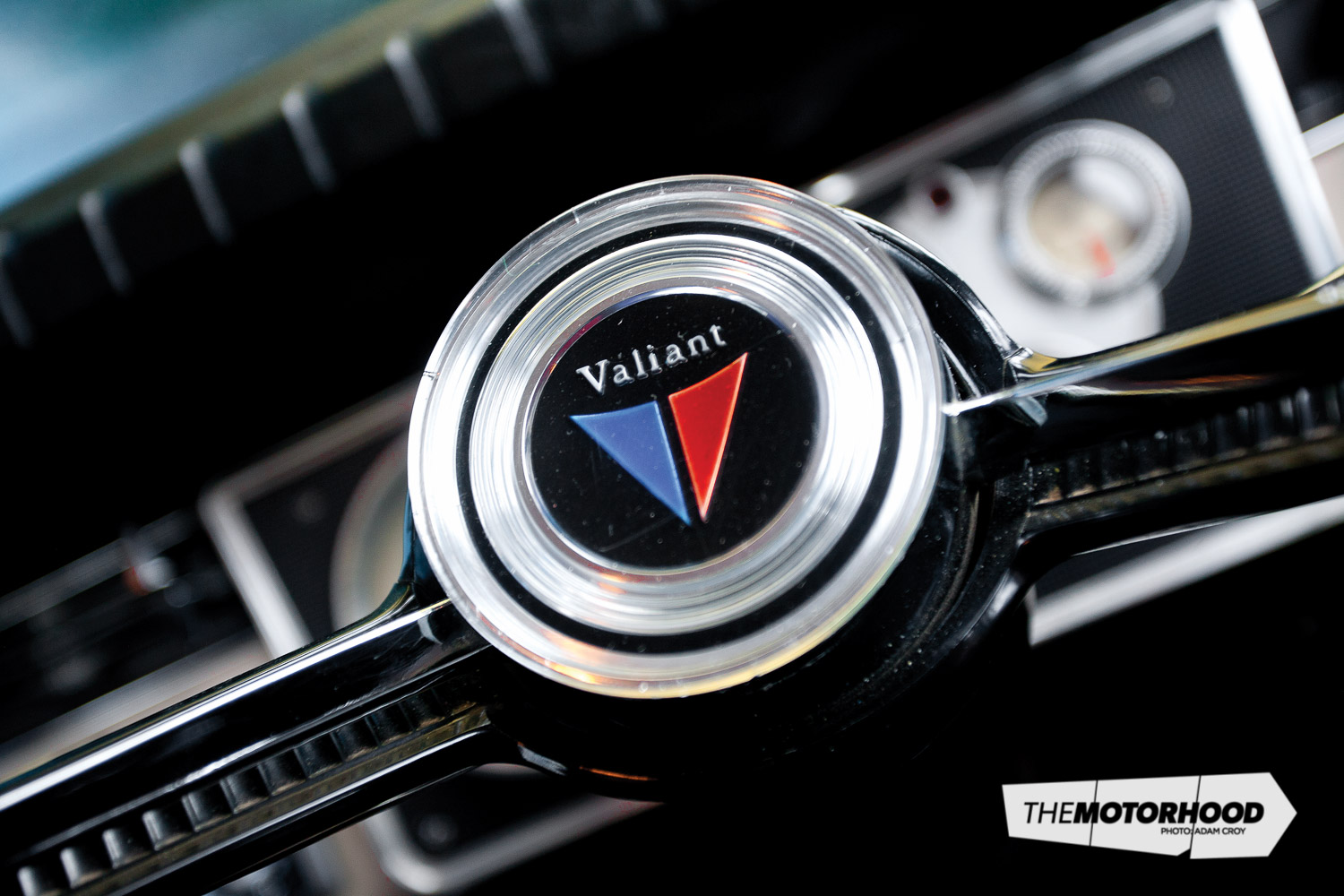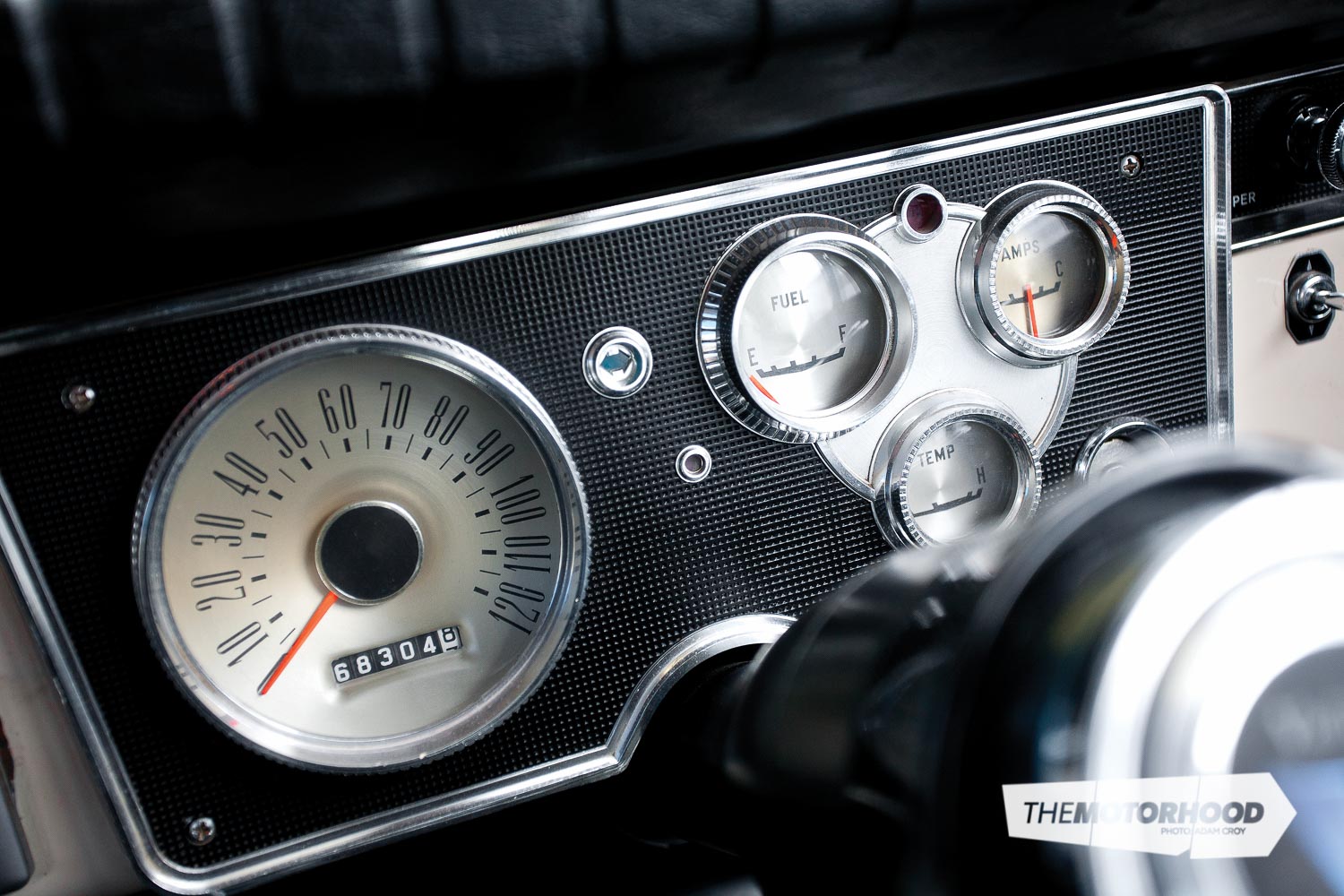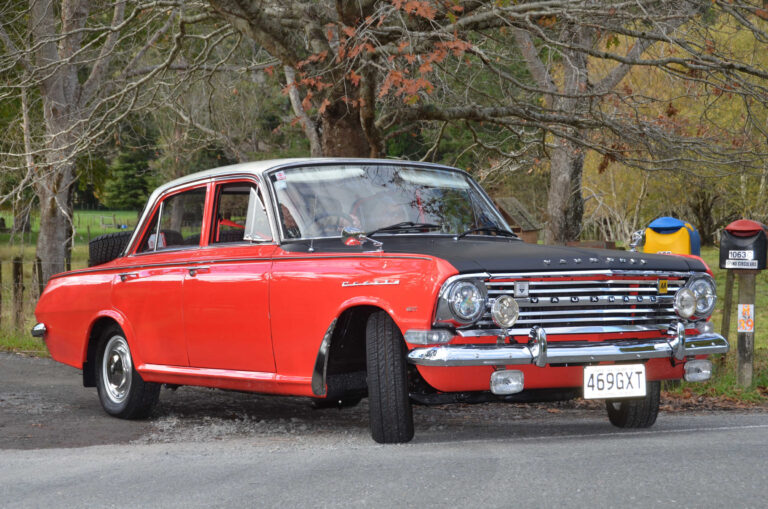data-animation-override>
“Whilst travelling through the South Island, we dropped by to check out Stephen Mitchell’s incredibly original and rare 1965 Chrysler Valiant V8”
Once we’d found a spot sheltered from the rain, Stephen Mitchell explained that this particular car boasts the American V8 273ci (4.47-litre) engine which Chrysler used in these earlier-model Valiants before introducing the 318ci (5.21-litre) V8 engine in the VE series Valiant.
It seemed that back in the mid-1960s, the Chrysler Valiant’s slant-six power plant — producing a respectable 108kW (145bhp) — was more than sufficient to keep most Aussie drivers on their toes. What’s even more important, for Chrysler anyway, is it held the lead in the power struggle between the big three — Chrysler, Ford, and Holden — so the question begging to be asked is why introduce a V8 engine? The answer is quite simple.
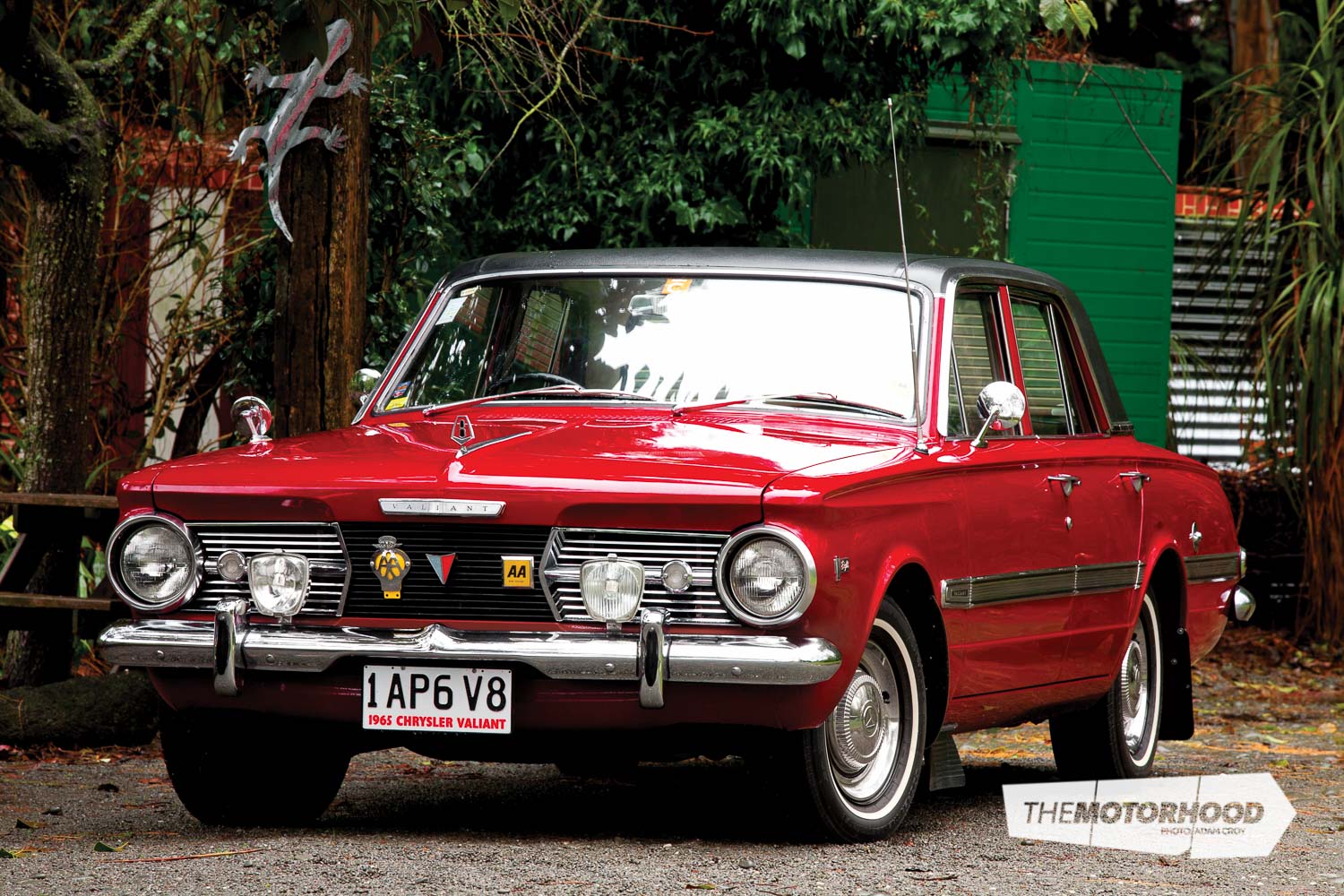
Holden and Ford were slowly but surely edging closer in the power race and Chrysler was only too well aware that the impact on its customers was basically due to those extra horses, so the decision was made to go one better and introduce a V8 engine. Chrysler Australia’s strategy of dropping a V8 engine into the Valiant’s engine bay made even more sense given the fact that a suitable 4.47-litre V8 engine had already been well and truly tried, tested and proved in the US, which made the decision a no-brainer.
When the Chrysler Valiant V8 was released to the Australian public in 1965 the media had an absolute field day, to say the least. In fact, so much purple prose was written that it soon became difficult for journalists to come up with a fresh, non-biased approach to Chrysler’s new, mid-sized V8 sedan. However, most agreed that the V8 engine option was a new and exciting addition to Chrysler’s line-up.
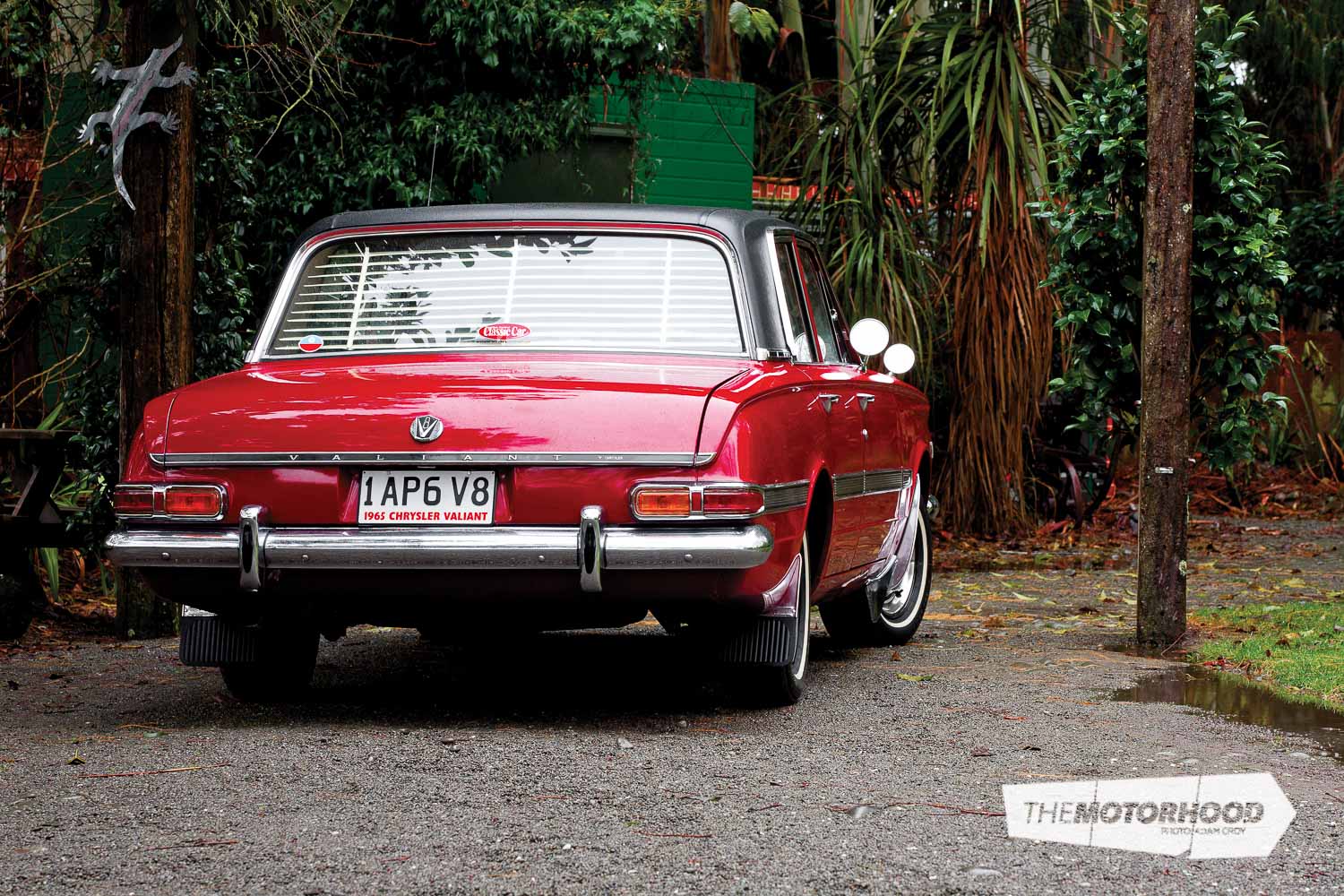
From Matchbox to Valiant
Stephen Mitchell’s interest in cars goes way back to the time when his parents bought him Matchbox toys as a kid. This early passion for model cars remained with Stephen and, today, he has a large collection of model cars.
When he was 15 years old his parents purchased a near-new AP6 three-speed Valiant from McLaren Motors in Christchurch. This became the family car for about two years before being sold. Since then, Stephen has always had a liking for Valiants.
Over the years, Stephen has owned a variety of cars — including a very original Austin A35 and a very nice, one-owner HT Holden Kingswood station wagon as well as a Ford Consul MkII and a PB Vauxhall. Eventually, as you’d expect, he bought his first Valiant — an AP5 model with the desirable push-button automatic transmission option — while he was working at a local Chrysler dealership in Christchurch. The Valiant was subsequently sold around two years later in order that Stephen could purchase a Ford Cortina MkI.
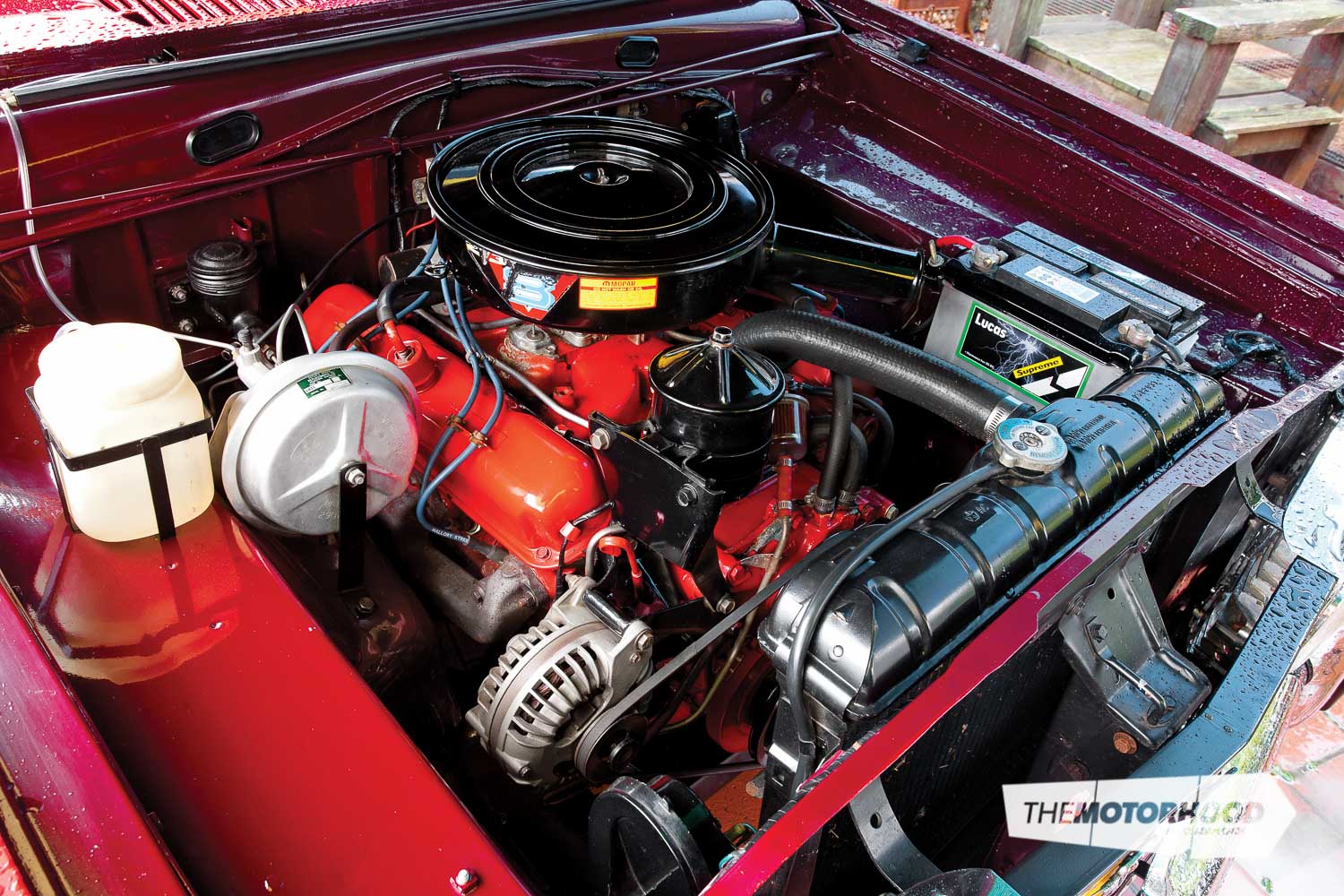
Over the following years, he ended up owning several Cortinas before buying another one-owner A5 Valiant from Ashburton. A year later he bought a VC Valiant Regal, another one-owner car with just 50,000km on the clock. These were only a few of the dozens of very nice cars Stephen has owned.
As time passed he yearned to own a Chrysler Valiant again and decided to place an advertisement in a local newspaper for an AP6 Valiant Regal. As luck would have it, a gentleman responded with the news that his father owned a good condition car with a factory-fitted V8, and he made the necessary arrangements for Stephen to view it. Unfortunately, when Stephen actually got to meet the elderly owner he was told that the vehicle was, in fact, not for sale. Stephen found that quite odd and wondered why the son had bothered to tell him about the car in the first place.
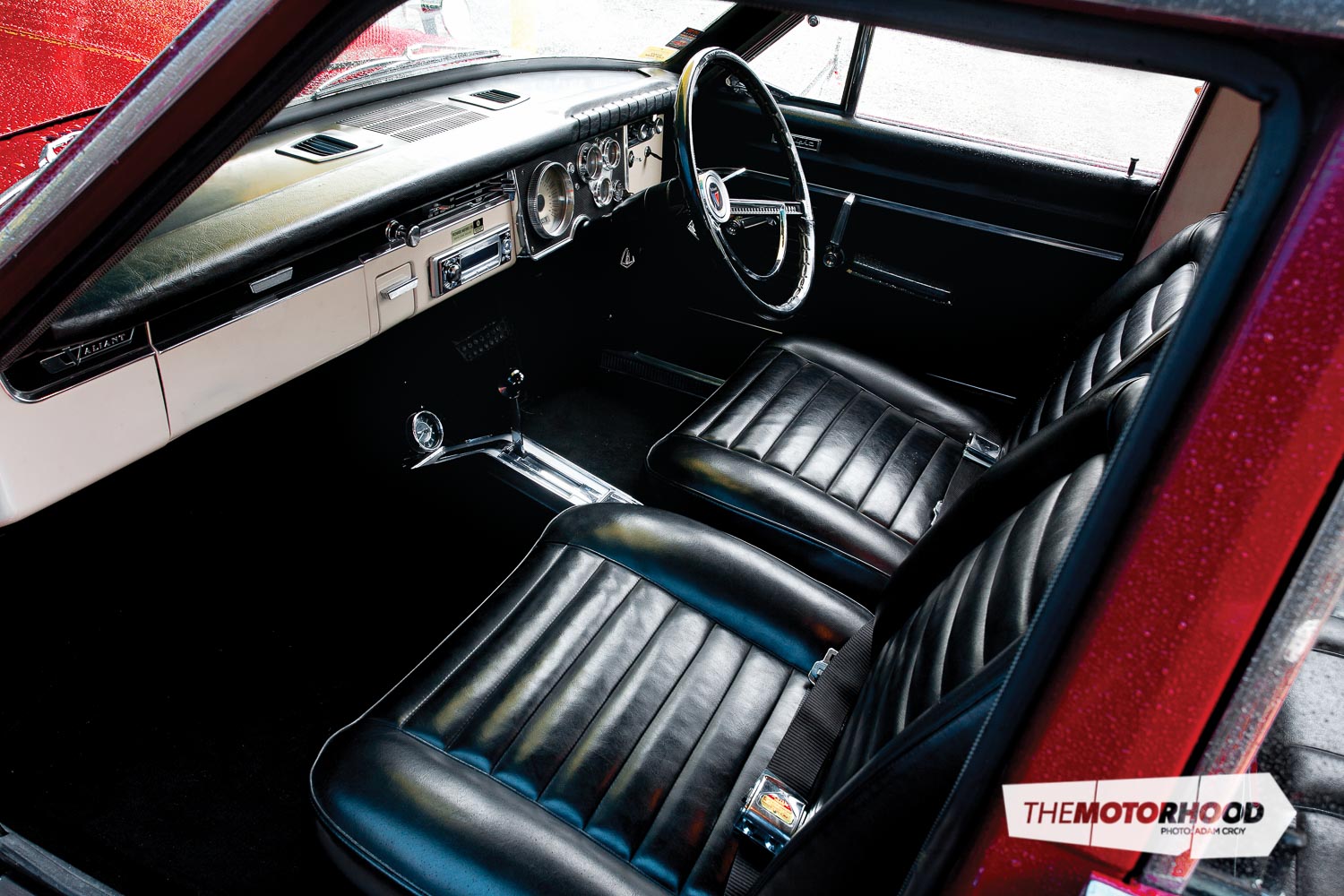
Undeterred, over the next 10 years Stephen continued to keep in contact with the owner — making three offers on the Chrysler during that time. The owner would tell Stephen that he’d think about it and let Stephen sweat on it for about a month or so and then say that he wasn’t selling.
During one of these approaches to the owner, Stephen took a good friend — who works for Air New Zealand and has owned an AP5 Valiant for about 40 years — with him. He advised Stephen to offer less for the Chrysler this time around as the car had probably deteriorated somewhat since he’d last seen it. The owner found this lower offer insulting and told Stephen and his friend to go away and that he wasn’t interested in selling his Chrysler.
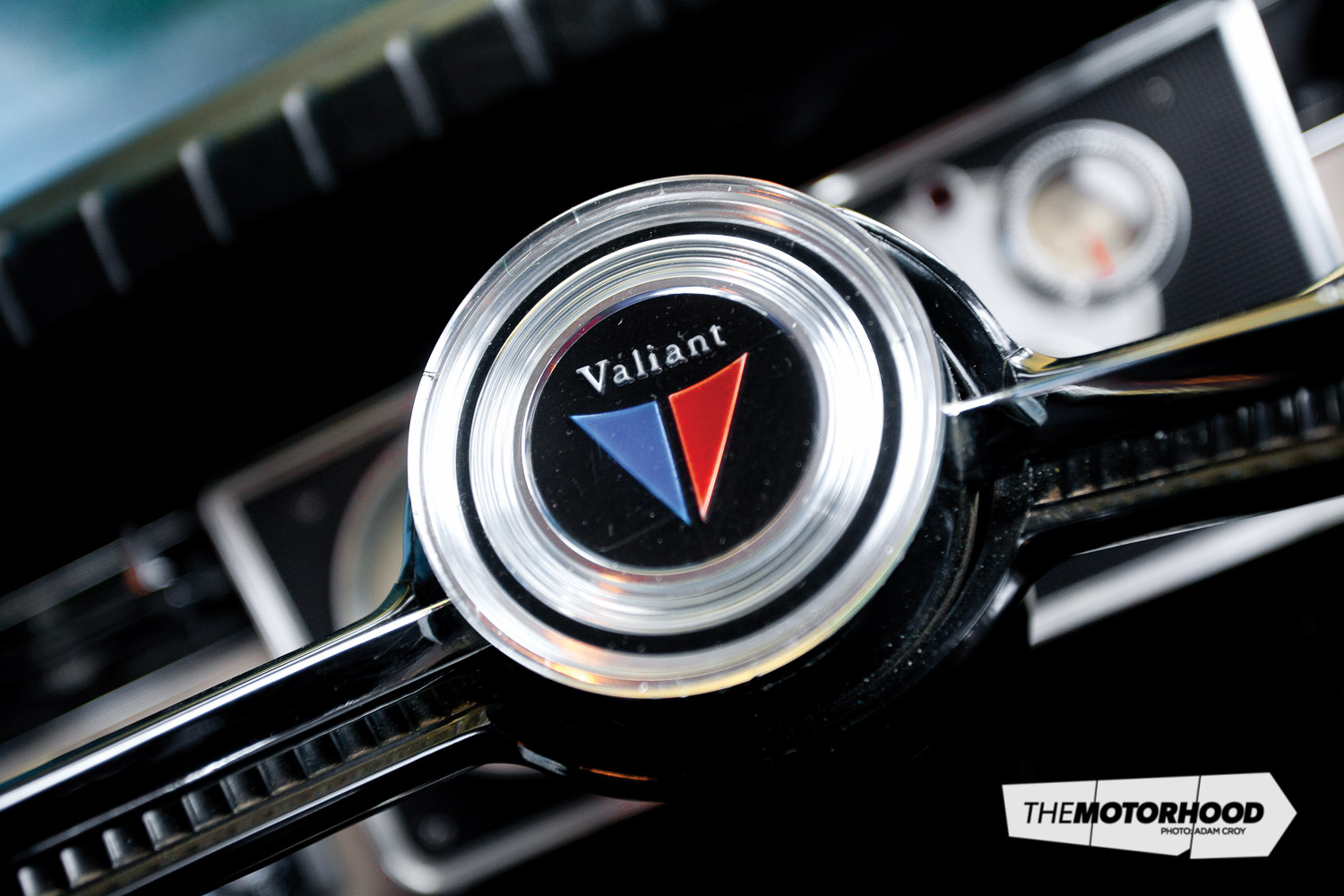
Persistence pays off
Another couple of years passed and Stephen was back again, tenacious as ever, to make another offer on the car. This time, they entered into negotiations and an agreement was eventually settled – with Stephen having to front up with $1000 more than he’d initially offered. Despite having just purchased the Valiant, the old owner made the passing comment that the car would always be his, as he’d owned it since new.
Stephen later learned that the elderly owner had owned a Chrysler franchise – Richard Motors in Oamaru – and a friend had imported the Australian-assembled Chrysler in the days when it had been impossible to import a car without overseas funds. Being a typical car dealer, he waited until the following year, 1966, to register the car. Further research indicated that he also put later-model hubcaps on the car which, according to Stephen, are incorrect for this particular model – although the previous owner remains adamant they are original because they’ve been on the car since new.
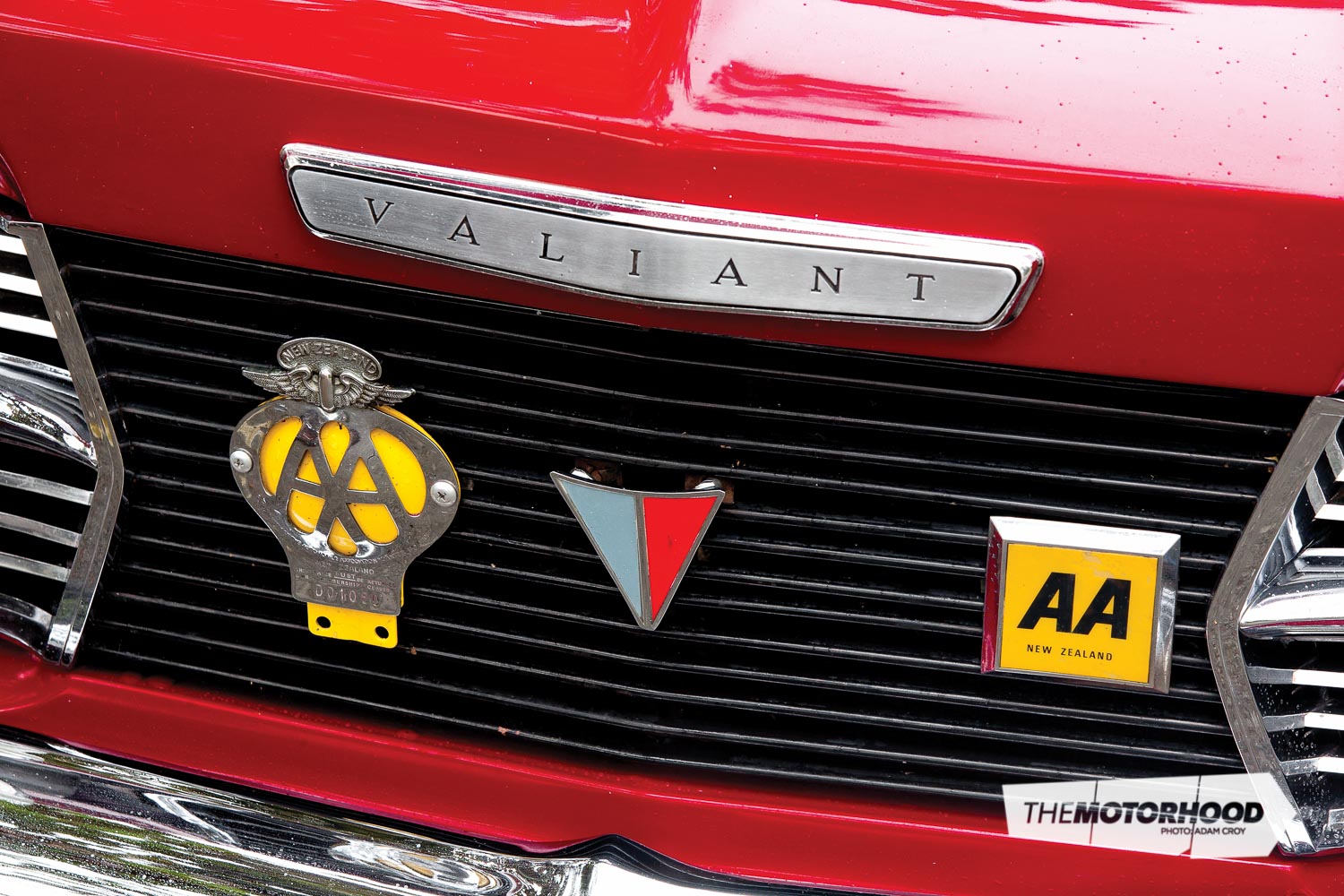
Apparently, the Valiant was driven until it showed about 58,000 miles (93,342km) on the clock and was then taken off the road around 1983, according to the last ‘orange’ registration sticker. Subsequently, it was only started every now and again then taken for a short drive on the odd occasion. Unfortunately for Stephen, the previous owner had let the registration lapse, although he still had the original number plates.
Stephen asked his friend, Kerry Clements, if he would help him get the car back on the road. The first thing to check out was the engine and, although it had only covered a relatively low mileage, they decided to check under the tappet covers just to make sure. Surprisingly, there was rust everywhere so the next step was to remove the heads and have them planed. A much-needed valve-grind was carried out.
Kerry also decided to install a new oil pump – surprisingly enough, available off-the-shelf from Sylvester Motors – along with a new fuel pump, radiator, and alternator, the items Kerry reckoned would be most likely to cause Stephen grief further down the track.
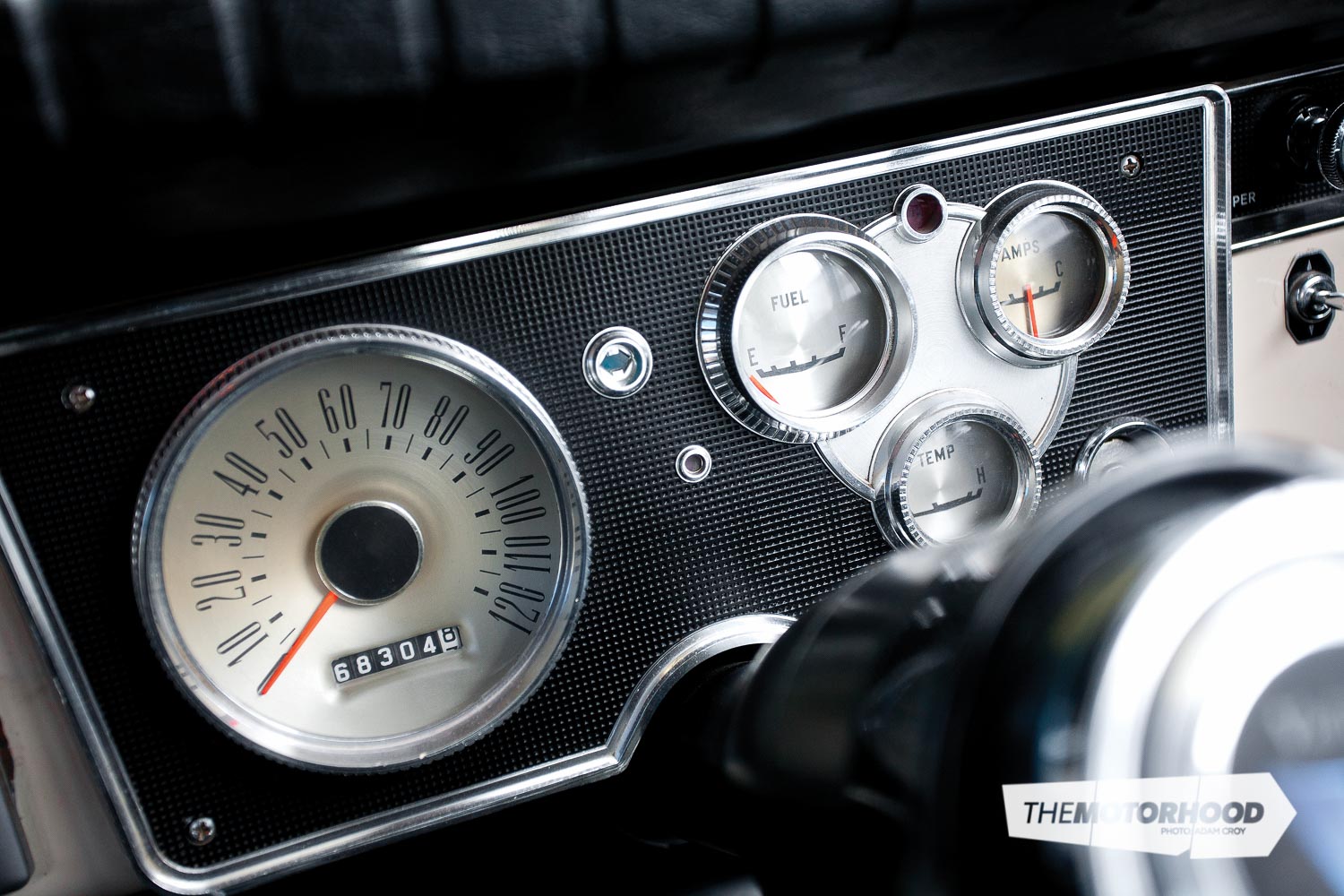
The engine was repainted and reassembled whilst the engine bay was also treated to a makeover. The inside of the boot was repainted and the entire underside of the car was stripped by hand because Stephen didn’t want to water blast it, and then repainted and rust-proofed. Stephen was happy to discover absolutely no rust anywhere in the body.
Mind you, because the car had been sitting for so long the brakes had completely seized and needed to be refurbished, while the exhaust system was rotten and was replaced with an entirely new system. Stephen also fitted a new set of American whitewall tyres, the type that would’ve originally been fitted to the car when it was new.
The interior was also completely stripped out, cleaned, and the original trim was fitted back into the car with the addition of new carpets.
Finally, after sitting in Kerry’s garage for almost a year, the Chrysler was back on the road. That all happened seven years ago.
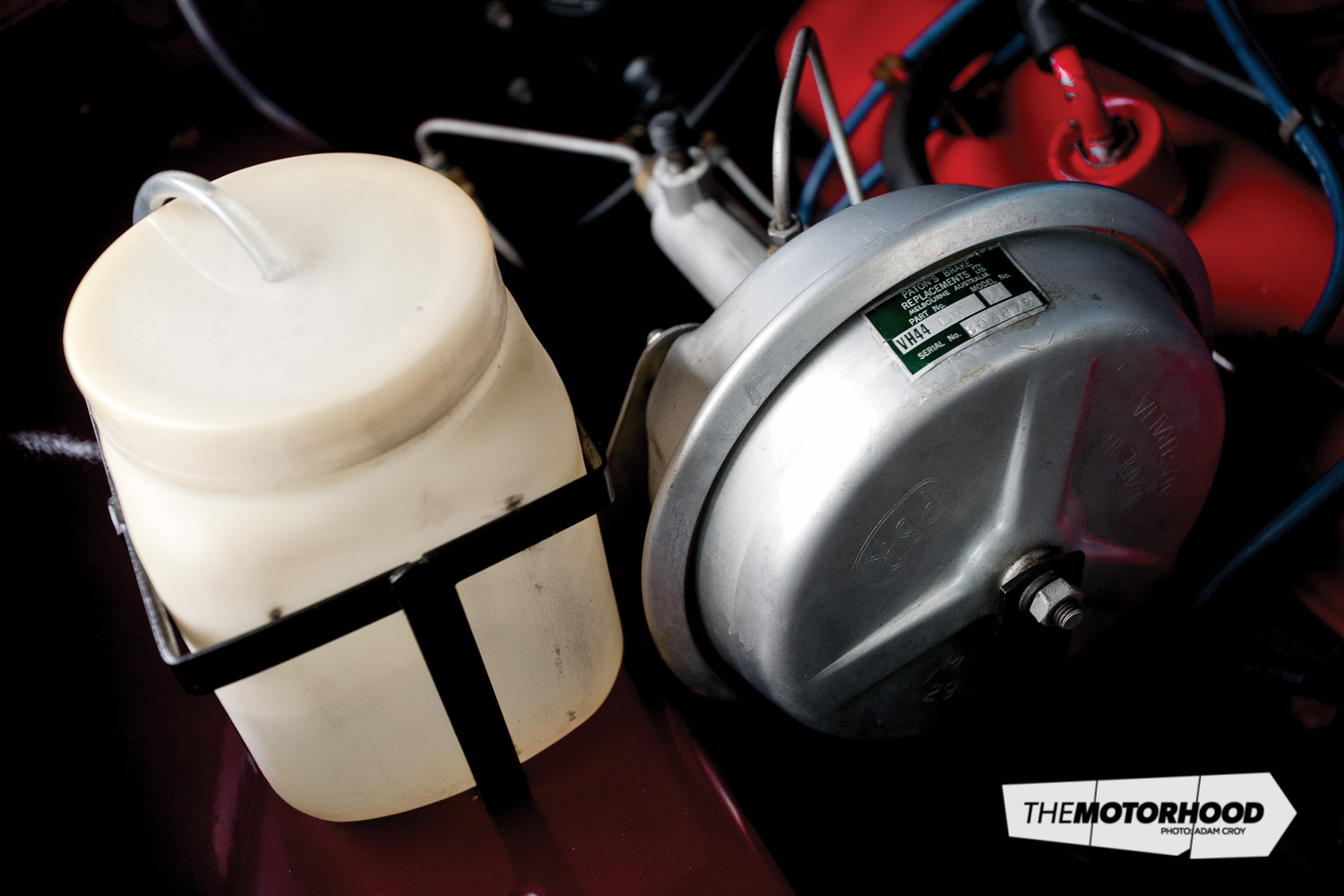
Out and about
Stephen’s first outing in the refurbished Valiant was a classic car run, which he enjoyed immensely, and, with that in mind, he had soon put his name down for another, similar run. Alas, the Chrysler’s automatic transmission decided to self-destruct a few weeks after the first run.
Some $1300 later, the transmission was fully rebuilt and Stephen reckons it’s better now than when he first drove the car during his first attempt to buy it all those years ago. On that very first test drive, he remembers that the transmission seemed to take too long to change from the first stage to the second, but the original owner had been told it was like that from new. In fact, that first owner had the Valiant’s TorqueFlite transmission stripped down whilst it was still under warranty.
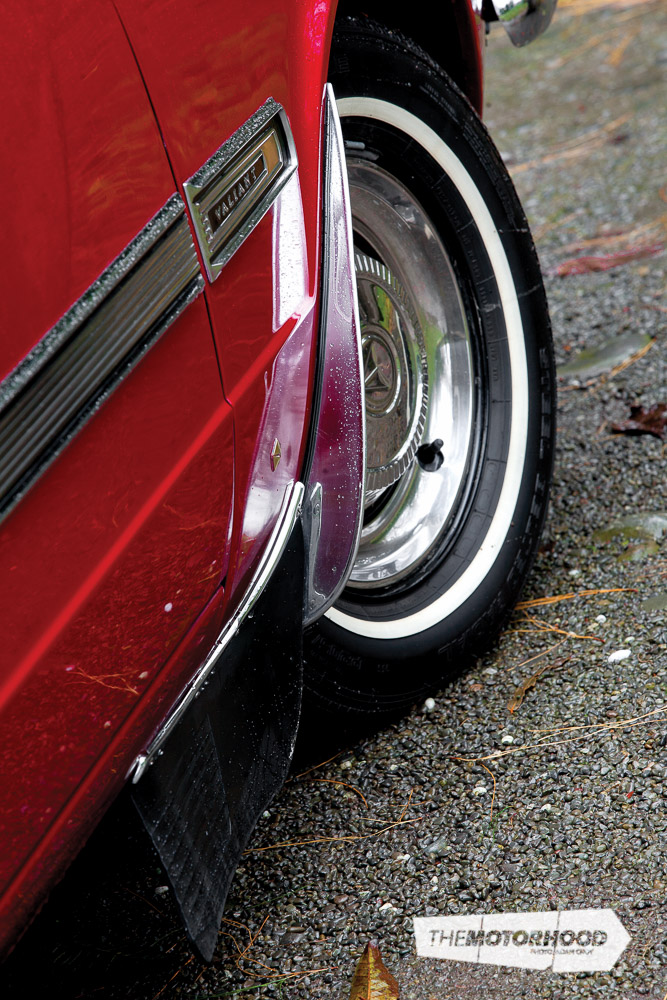
Nevertheless, Stephen is now happy with the transmission’s smooth gear changes and, combined with the V8 engine, this car is very quick indeed.
At the time we met up with Stephen, his Chrysler had been on the road for about seven years, during which time (transmission woes excepted) it has never missed a beat in almost 16,000km. As a precaution, the Valiant has now been fitted with an electronic ignition system purely for reliability – once again thanks to Stephen’s friend, Kerry.
Stephen has also added a few period extras to the car – including Venetian blinds for the back window and an original locking fuel cap, the latter having been found by a friend at a swap meet in Australia after Stephen had provided him with a photograph of exactly what to look for. It was a good find – in fact, the locking fuel cap was brand new and still in its original box. Other period accessories on the car include bumper over-riders which, according to the previous owner, were original optional items.
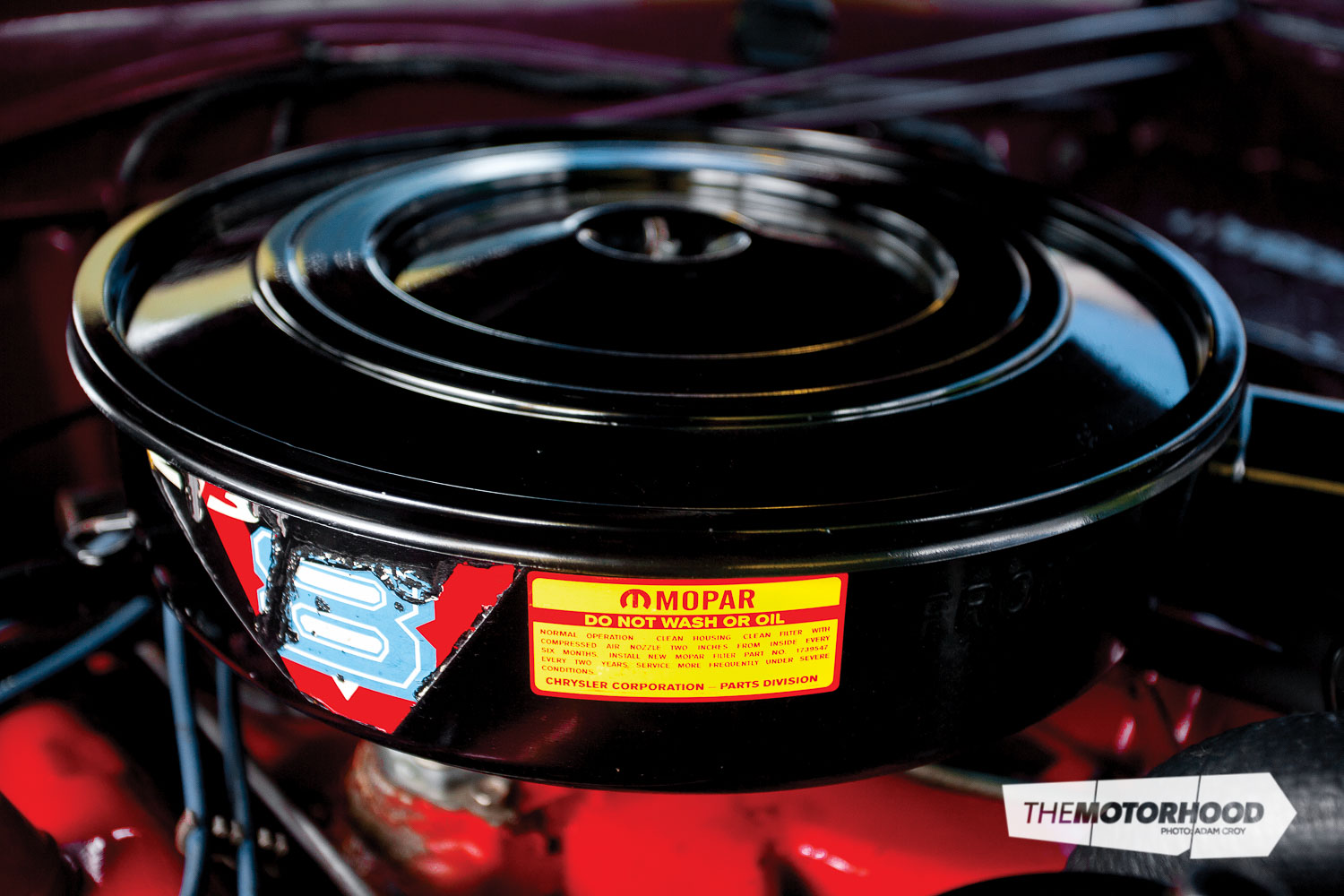
One of the things Stephen would like to do one day is to completely strip the car back to bare metal for a repaint – mainly to cure some slight colour variations between the engine bay and the underside of the car. Most enthusiasts would ask why he’d even touch it and suggest leaving the car as is. However, for Stephen, a full repaint would make him one-hundred-per-cent happy. He has even asked himself whether he wants to increase the existing, low mileage on the car by driving it – but decided there was little point in owning a classic car if you can’t drive it and enjoy it, even if you own rare classic.
Interestingly, Stephen’s daughter has expressed some interest in this lovely old Chrysler, and local collector John Stewart has also expressed an interest, although Stephen has absolutely no plans of letting this beauty go just yet. He knows he can get out in his garage, turn the key – that trusty old V8 engine will fire into life every time – and then drive off on another trip. That still gives him a real buzz, especially as this rare beauty is such a nice car to drive around.
That, folks, is what classic car ownership is all about.
1965 Chrysler Valiant V8
- Engine: Chrysler 90° V8
- Capacity: 4474cc (273ci)
- Bore/stroke: 92.2 x 84mm
- Valves: Two valves per cylinder/OHV
- C/R: 8.8:1
- Max. power: 134kW (180bhp) at 4200rpm
- Max. torque: 352.3Nm at 1600rpm
- Fuel system: Carter two-barrel downdraught carburettor
- Transmission: TorqueFlite three-speed automatic
- Suspension: F/R Lateral control arms, torsion bars / semi-elliptic leaf springs
- Steering: Recirculating ball PAS
- Brakes: Drum/drum
- Dimensions:
- Overall length: 4818mm
- Width : 1769mm
- Wheelbase: 2717mm
- Height: 1410mm
- Kerb weight: 1341kg
- Performance:
- Max. speed: 175kph
- 0–100kph: 10.9 seconds
- Standing 1/4 mile: 17.2 seconds
his article was originally featured in the February 2013 issue of New Zealand Classic Car (Issue 266). Grab a print copy or a digital copy of the mag now:
